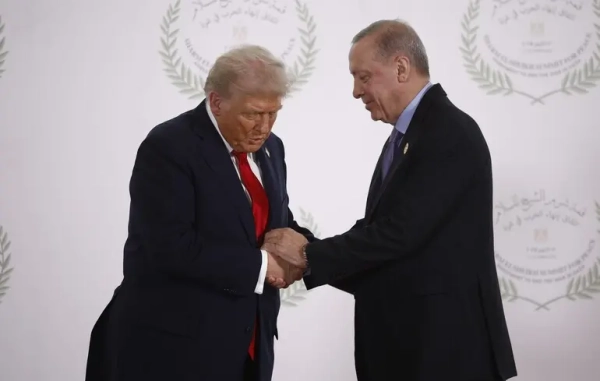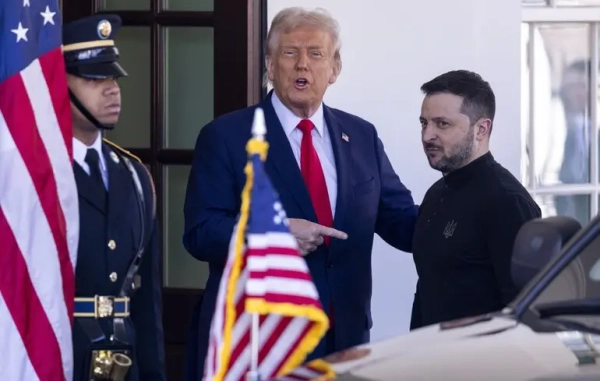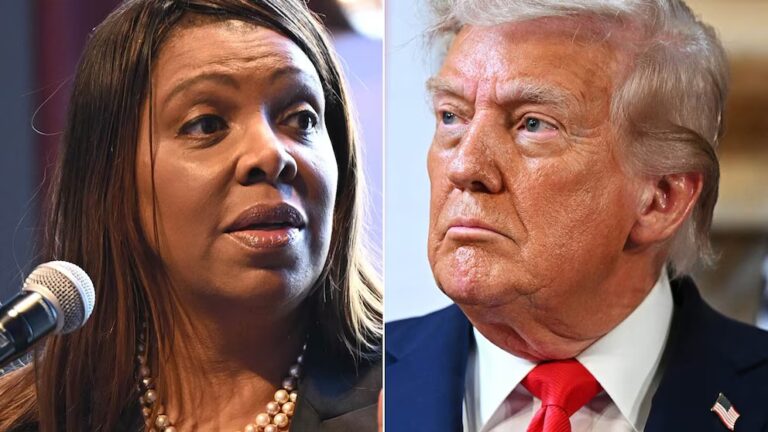A high-stakes meeting Tuesday between President Joe Biden and congressional leaders on the debt ceiling ended with no solution as the nation barrels toward a June 1 deadline to reach a deal or risk default.
"Everybody in this meeting reiterated the positions they were at. I didn't see any new movement," House Speaker Kevin McCarthy, R-Calif., told reporters as he left the White House.
Biden, who later labeled the meeting "productive," told reporters he'll sit down with the leaders again on Friday and their staffs will meet daily in the interim to continue discussions.
When asked about the short time left to reach a deal, he said he'd skip next week's long-scheduled trip to Japan to meet with G-7 leaders if necessary.
"I'm still committed," he said of the trip. "But obviously this is the single most important thing that is on the agenda."
MORE: Blame breaks evenly if government defaults on debt, despite preference for Biden's position: POLL
Both parties dug into their familiar talking points as they emerged from the short meeting, with each side stating the other has the responsibility to act.
"The House raised the debt limit, the Senate has not and the president hadn't been negotiating," McCarthy said, pointing to the Save, Limit, Grow Act narrowly passed last month to raise the debt ceiling in exchange for reducing funding for federal agencies to 2022 fiscal year levels and limiting growth in government spending to 1% per year.
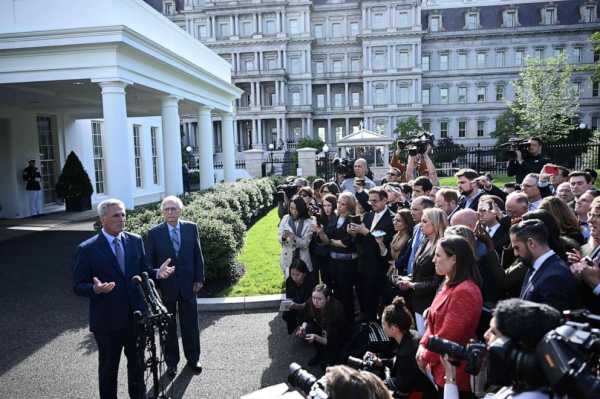
Speaker of the House Kevin McCarthy speaks to reporters with Senate Minority Leader Mitch McConnell after meeting with President Joe Biden at the White House in Washington, D.C,, on May 9, 2023.Brendan Smialowski/AFP via Getty Images
Senate Majority Leader Chuck Schumer and House Minority Leader Hakeem Jeffries left the meeting with a message to their Republican counterparts to "take default off the table."
"The bottom line is very simple. There are large differences between the parties," Schumer said of the two 2024 budget proposals offered by Biden and by House Republicans.
"We can try to come together on those in a budget and appropriations process, but to use the risk of default, with all the dangers that has for the American people, as a hostage and say it's my way or no way … is dangerous," Schumer added.
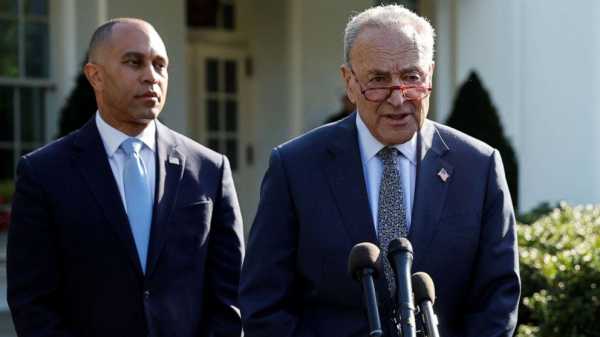
House Democratic Leader Hakeem Jeffries (D-NY) and Senate Majority Leader Chuck Schumer (D-NY) face reporters following debt limit talks with President Joe Biden and Congressional leaders at the White House in Washington, May 9, 2023.Jonathan Ernst/Reuters
Senate Minority Leader Mitch McConnell categorically declared the U.S. would "never default."
"It never has, and it never will," McConnell said. "However, elections have consequences. We now have divided government."
Biden said he was "pleased" by McConnell's comments and said "everyone in the meeting understood the risk of default."
Biden has said raising the debt ceiling is non-negotiable, and told reporters he was considering the 14th Amendment to get around the debt ceiling and continue borrowing money — a solution Treasury Secretary Janet Yellen told ABC would risk an "unconstitutional crisis" — but that it would take time to get litigated.
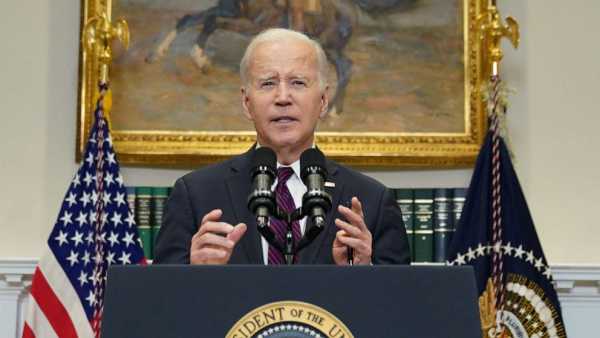
President Joe Biden speaks to reporters in the Roosevelt Room after holding debt limit talks with House Speaker Kevin McCarthy (R-CA), Senate Republican Leader Mitch McConnell (R-KY) and Democratic congressional leaders at the White House in Washington, May 9, 2023.Kevin Lamarque/Reuters
While both sides still seemed miles apart on a debt ceiling fix, a rare point of agreement did emerge ahead of the meeting: opposition to a short-term solution.
"He's gotta stop ignoring problems," McCarthy said about Biden before the meeting Tuesday. "And why continue to kick the can down the road? Let's solve it now."
White House press secretary Karine Jean-Pierre told reporters during the daily briefing, "A short-term extension is not our plan, either. That is not our plan."
Jean-Pierre reiterated the Biden administration's view that it is Congress' duty to enact a clean raise to the debt ceiling without conditions.
McCarthy said he believed a deal in principle on the matter is needed by next week in order to avert default, which Treasury Secretary Janet Yellen warns could come as soon as June 1 though there's still uncertainty about the exact date when the government would be unable to pay all of its bills.
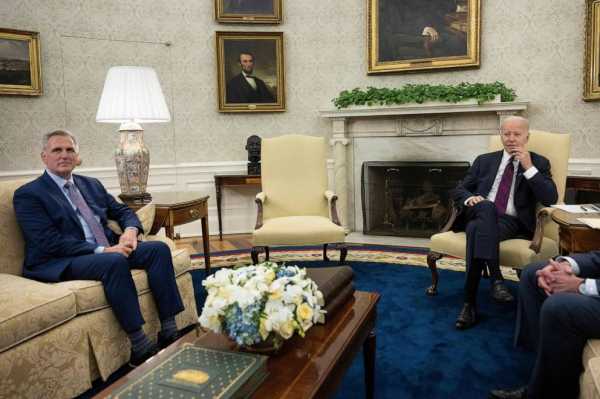
Speaker of the House Kevin McCarthy, left, meets with President Joe Biden about the debt ceiling with (not pictured) Minority Leader Hakeem Jeffries, Senate Majority Leader Chuck Schumer and Senate Minority Leader Mitch McConnell in the Oval Office of the White House, May 9, 2023.Brendan Smialowski/AFP via Getty Images
MORE: Biden, McCarthy face serious time crunch to reach debt ceiling deal
Administration officials have warned adversaries like China and Russia could take advantage if the U.S. were to default, and economists state there would be wide-reaching impacts that could trigger a global financial crisis.
"It's widely agreed that financial and economic chaos would ensue," Yellen said Sunday on ABC's "This Week".
If the U.S. were to default for the first time in history, Americans are split on who would bear responsibility.
A recent ABC News/Washington Post poll found 39% would mainly blame the Republicans in Congress, while virtually as many, 36%, say they'd mainly blame Biden. Sixteen percent volunteer that they'd blame both parties equally.
Sourse: abcnews.go.com
